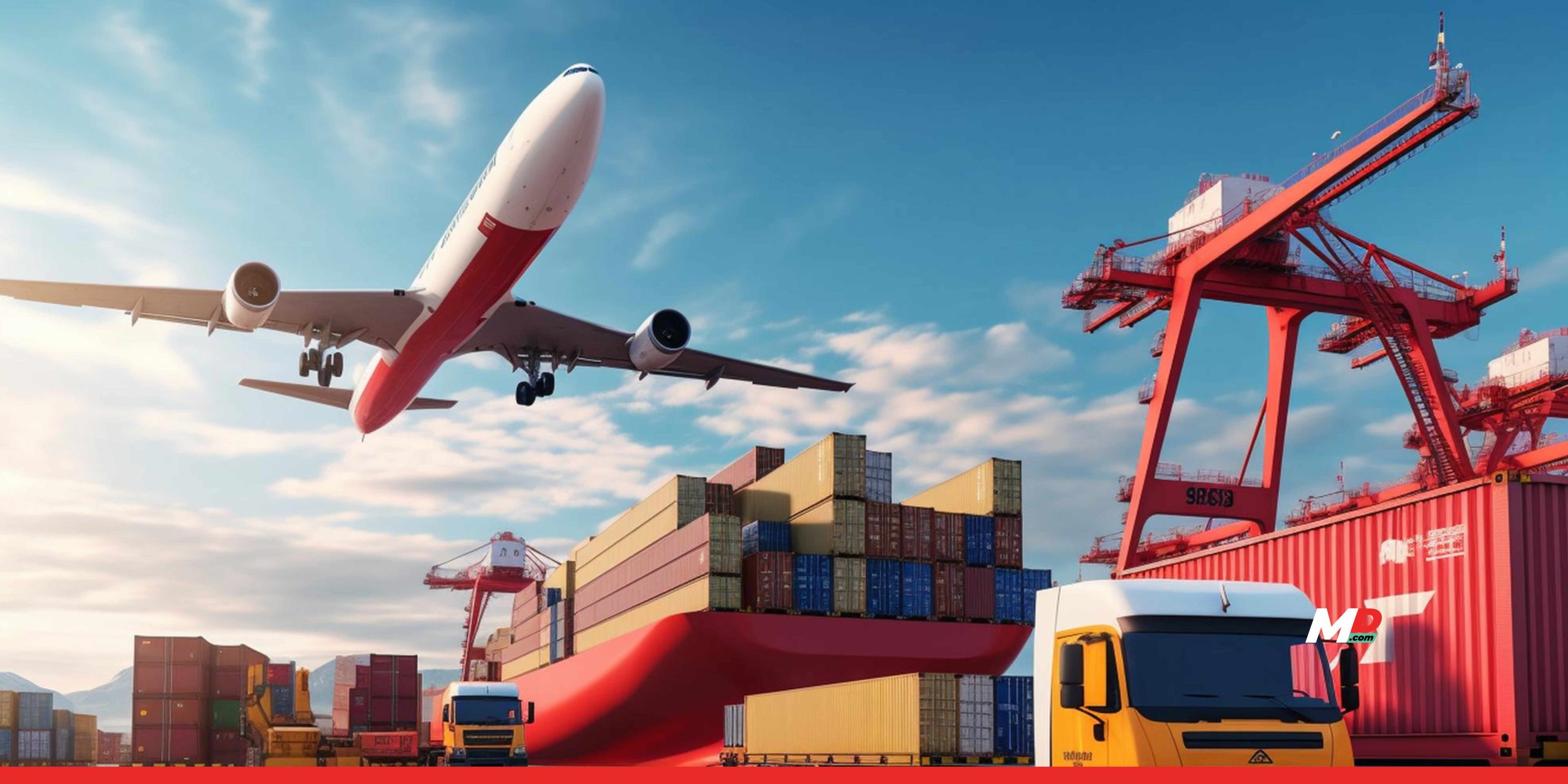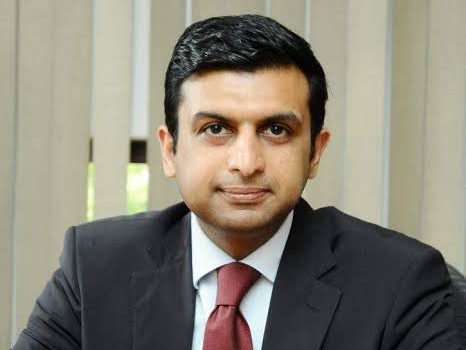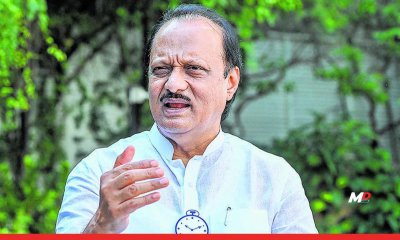Published
2 years agoon

With India awaiting the announcement of the date for the presentation of the Union Budget 2024 by Finance Minister Nirmala Sitharaman, the logistics industry is anticipating consistency in policy, technology, and infrastructure-led reforms from the newly formed NDA government. Industry leaders emphasized that for India to become a $7 trillion economy by 2030, the logistics sector must act as a catalyst for growth. The government should focus on reforms and proposals that include a continued capex push for transportation, port, and digital infrastructure development to boost logistics efficiency and competitiveness in line with the vision and goals of the National Logistics Policy.

Ketan Kulkarni, Chief Growth Officer, Allcargo Logistics, remarked, “As India aspires to become a $7 trillion economy by 2030, the logistics industry is set to play the role of a growth catalyst. Consistency in policy, technology, and infrastructure-led reforms is crucial. The NDA government’s emphasis on continuity and stability in decision-making and policy measures is very encouraging, and we expect this intent to be reflected in the full Budget.”

Vineet Agarwal, MD, Transport Corporation of India, stated, “As we approach the Union Budget 2024-25 announcement, we, at TCI, are optimistic about the government’s commitment to bolstering the logistics sector. An emphasis on infrastructure development, streamlined regulations, upskilling programs for the workforce, and enhanced investment in technology will be pivotal in driving efficiency and sustainability in our industry. We look forward to policies that support innovation, facilitate ease of doing business, and create a robust framework for the growth of the logistics and transportation sector, ultimately contributing to the nation’s economic resurgence.”

Nishith Rastogi, Founder & CEO, Locus, reiterated, “As we await the 2024 Union Budget, the focus for India’s logistics sector remains clear: a forward-looking budget that champions technological integration and robust infrastructure development. With the new National Logistics Policy and initiatives like PM Gati Shakti already setting the groundwork, the industry is on the verge of transformative growth. This budget represents a pivotal opportunity to future-proof our logistics industry. Beyond infrastructure enhancements and tax reforms, there is an urgent need for strategic resource allocation to adapt to market dynamics, including fuel price fluctuations and supply chain disruptions. By investing in cutting-edge technology and aligning with global digitalization and sustainability standards, we can mitigate current challenges and position India as a leader in a tech-driven, efficient logistics sector on the global stage. Additionally, incentives for green logistics and digital infrastructure development will be key to achieving our long-term goals.”

Zaiba Sarang, Co-founder, iThink Logistics, emphasized, “The logistics industry has great hopes as the Union Budget 2024 draws near. Important areas of concentration include making large infrastructural expenditures to improve efficiency, such as building multimodal logistics parks and designated freight corridors. For enhanced operations and transparency, embracing cutting-edge technology like AI and IoT needs incentives. Streamlining the GST system and encouraging sustainability by using electric cars and other eco-friendly activities is also essential. Innovation and growth will also be fueled by assistance for SMEs, startups, and skill development as well as by encouraging public-private collaborations and streamlining regulatory procedures. By addressing these issues, the industry will contribute more to India’s economic development.”

Siddharth Shetty, City Head, Industrial & Logistics, Colliers International’s shared, “My expectations are centered around a few key areas that could significantly impact the logistics and e-commerce sectors. I hope to see a continued focus on enhancing the ease of doing business. Streamlining regulations and reducing compliance burdens for startups and SMEs will encourage innovation and growth. Simplifying and reducing the tax structure, particularly around GST, can help businesses manage their finances more efficiently and encourage more entrepreneurs to enter the market. Investments in infrastructure are crucial. Improved road and rail networks will enable more efficient supply chains, benefiting both businesses and consumers. Pushing forward initiatives like the National Logistics Policy, which aims to reduce logistics costs and boost the sector’s competitiveness, is essential. Additionally, supporting MSMEs through accessible financing options and skill development programs will strengthen the backbone of our economy. MSMEs play a crucial role in the logistics supply chain, and empowering them will have a ripple effect across the industry.”

Adarsh Padmanabha, Chief of Commercials and Contract, Welspun One Logistics Park, concluded, “The upcoming budget for the logistics sector in India is poised for a dynamic shift, recovering from the volatility caused by recent global disruptions such as wars. The sector has seen a steady annual escalation of around 5%, signaling a return to stable growth. However, the primary challenge remains the availability of raw materials, leading to significant difficulties in identifying cost-effective alternatives. As the logistics sector expands across India, new corridors are being developed to take advantage of lower land prices. Nevertheless, the quality of land, including issues with shape, contour, and soil conditions like black cotton and rocky terrains, has driven up land acquisition costs, thereby substantially increasing construction budgets. Additionally, the persistent labor shortage poses another major challenge. With India in a significant development phase, the demand for labor is at an all-time high. The necessity for timely or faster project delivery has forced developers to invest in more machinery to reduce labor dependency or to offer higher wages to retain labor strength. This situation further escalates construction costs, making budget management in the logistics sector increasingly complex.”

Yogesh Rajgor, Logistics Expert, emphasized the need for tax exemptions on electric commercial vehicles, stating, “There should be no GST on EV commercial vehicles to promote their adoption and support sustainable logistics.” He also highlighted the importance of infrastructural development in logistics parks, advocating for tax exemptions on warehousing facilities exceeding 25 lakh square feet.
Rajgor further underscored the necessity of comprehensive welfare measures for truck drivers. “It is crucial to implement robust insurance and healthcare plans, pension schemes, and ensure that drivers have access to proper food, shelter, and fair wages. These measures are essential to improve their quality of life and enhance the overall efficiency of the logistics sector,” he added.


Union Budget 2026: The verdict from the Boardroom is in


Union Budget 2026: All the key announcements made by the FM


Maharashtra Deputy Chief Minister Ajit Pawar passes away after plane crash near Baramati


Deepinder Goyal resigns as Eternal CEO; Blinkit’s Albinder Dhindsa to take the helm


📈 Markets Open Strong : Voltas in Focus Amid Recovery Hopes


Couple attends own wedding virtually after being stranded by IndiGo

